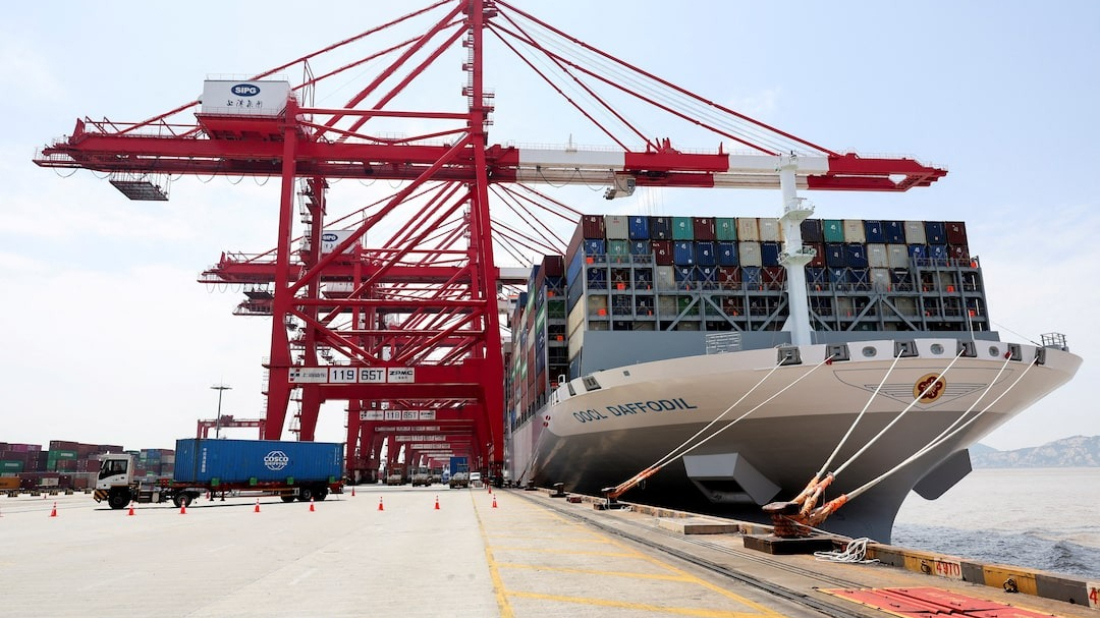Trump says second U.S. carrier possible if Iran talks fail
U.S. President Donald Trump says Washington could deploy a second aircraft carrier strike group to the Middle East if nuclear negotiations with Iran c...

China’s manufacturing sector contracted for a third consecutive month in June, highlighting the ongoing strain on the country’s industrial base amid weak global demand and renewed trade tensions with the United States.
Despite slight improvements in key indicators, economists say more stimulus is needed to keep growth on track.
The official manufacturing Purchasing Managers’ Index (PMI), released by the National Bureau of Statistics on Monday, edged up to 49.7 in June from 49.5 in May. While the reading met expectations and shows signs of stabilizing activity, it remains below the 50-point threshold that separates growth from contraction.
The data reflects a fragile recovery as Chinese manufacturers continue to face multiple headwinds, including sluggish global demand, deflationary pressures, and uncertainty from U.S. tariffs under President Donald Trump's administration. The White House’s imposition of sweeping import duties earlier this year, including levies over 100% on select Chinese goods, has disrupted supply chains and dampened export sentiment.
“There is still evidence of frontloading in trade, but the tariffs are lower now and manufacturers are preparing to ship holiday season goods,” said Xu Tianchen, senior economist at the Economist Intelligence Unit. He described the reading as “decent,” particularly given it was the first full month since tariff hikes were relaxed under a tentative U.S.-China agreement.
Still, the export outlook remains bleak. The new export orders sub-index remained in contraction for a 14th consecutive month, ticking up only slightly to 47.7 in June. Factory employment declined further, indicating lingering uncertainty among businesses despite a modest rebound in domestic orders and purchasing volumes.
The non-manufacturing PMI rose marginally to 50.5 from 50.3, supported by stronger construction activity, with the construction sub-index hitting a three-month high of 52.8. However, services sectors such as food, travel, and logistics showed weakness, reflecting uneven post-pandemic demand.
“Fiscal support looks to have continued to support infrastructure spending,” said Zichun Huang, China economist at Capital Economics. “But a fading fiscal tailwind is likely to slow activity in the second half of the year.”
The broader business outlook has dimmed, with a drop in the sentiment index suggesting manufacturers remain cautious about investment and hiring. Analysts say this puts pressure on Beijing to accelerate stimulus efforts, particularly as industrial profits turned negative in May and key sectors remain under strain.
Premier Li Qiang reiterated at recent international forums that China remains committed to transitioning from an export-led economy to one driven by domestic consumption. But experts caution that the structural shift will take time and may weigh on near-term growth.
“Exports are expected to decelerate in the second half of the year, and domestic deflationary pressures will intensify,” said Dan Wang, China director at Eurasia Group. “Household consumption cannot be a real short-term driver, but fiscal spending in things like infrastructure can deliver the kind of growth required to hit this year’s target.”
With Beijing aiming for around 5% GDP growth in 2025, economists say more targeted support for the manufacturing sector—and a durable resolution to ongoing trade tensions—will be critical in the months ahead.
JD Vance arrived in Armenia on Monday (9 February), becoming the first sitting U.S. Vice President to visit the country, as Yerevan and Washington agreed to cooperate in the civil nuclear sector in a bid to deepen engagement in the South Caucasus.
António José Seguro’s decisive victory over far-right challenger André Ventura marks an historic moment in Portuguese politics, but analysts caution that the result does not amount to a rejection of populism.
J.D. Vance met Azerbaijan's president Ilham Aliyev in Baku on a rare visit by a sitting U.S. vice president, signalling a renewed push to deepen cooperation with Azerbaijan on energy, security and regional stability.
Buckingham Palace said it is ready to support any police investigation into allegations that Prince Andrew shared confidential British trade documents with late sex offender Jeffrey Epstein, as King Charles expressed “profound concern” over the latest revelations.
Iran’s atomic energy chief says Tehran could dilute uranium enriched to 60 per cent if all international sanctions are lifted, stressing that technical nuclear issues are being discussed alongside political matters in ongoing negotiations.
J.D. Vance met Azerbaijan's president Ilham Aliyev in Baku on a rare visit by a sitting U.S. vice president, signalling a renewed push to deepen cooperation with Azerbaijan on energy, security and regional stability.
A scheduled visit to Ankara this week by Greek Prime Minister Kyriakos Mitsotakis will seek to “resolve all our problems at the table,” Ömer Çelik, a spokesman for Türkiye’s ruling AK Party, has said.
The European Union is preparing a further expansion of its sanctions against Russia, with Central Asia emerging for the first time as a distinct point of focus.
Azerbaijan and the United States signalled closer economic ties on Monday (9 February) as President Ilham Aliyev hosted a delegation from the U.S. Chamber of Commerce, highlighting the country’s investment appeal and growing interest from American companies.
“Peace is not just about signing treaties - it’s about communication, interaction and integration,” Sultan Zahidov, leading adviser at the AIR Center, told AnewZ, suggesting U.S. Vice President JD Vance's visit to the South Caucasus could advance the peace agenda between Azerbaijan and Armenia.
You can download the AnewZ application from Play Store and the App Store.

What is your opinion on this topic?
Leave the first comment